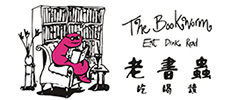Press

8 Questions for Ahmed Rashad;
Bio: Ahmed Rashad
What have you been busy with lately?
On the negative side, if we are talking about Egypt, it would definitely be the floating of the “Egyptian pound” and its effect on pricing.
On the positive side, we have been working on a very important project, which is re-publishing all the classics to make it easier to read and more appealing to young adults and people below 40.
How is the publishing market in Egypt and in the Arab world developing lately? Any new trends or interesting developments you could share with us?
The market in Egypt and the Arab world has been changing following the emergence of new forms of bookshops and outlets in the last 10 years; the target age group has changed as well. A new generation of young professional publishers has emerged, many projects have surfaced, translation projects have increased, and prestigious awards in the Arab world have been established.
You publish in a great variety of fields, but is there any field Al- Masriah is especially strong in and why?
We may be the only publisher that publishes in all fields, but in the last five years, we have focused more on fiction, and our publishing house is the publisher for most of the best-selling authors.
We hear that some of the books you published have successfully been turned into films; can you tell us some more about your experience with these adaptations?
The agreement we sign with the authors provides for drama adaptation because we believe that the publisher is one of the main reasons a book can reach the bestseller list. As a result, many producers rush to buy the drama rights for these best-selling novels. We as publisher choose the producer. We don’t sell the rights to just any producer because a bad film or a bad series will have a significant impact on the sales of the novel.
The IPA Global Book Fair Report 2017 cites an old Arab aphorism in its section about Egypt: “Egypt writes, Lebanon publishes, and Iraq reads”. What do you think of this saying?
That’s true but I think that is a very old aphorism and the situation has changed. You will find different professional publishers and printers in the whole region. The number of readers have also increased across the region. The economy plays an important role when it comes to reading habit.
You have successfully sold rights to the Chinese market before. Can you tell us a little more about your cooperation with Chinese publishers?
I have not sold rights to the Chinese market before, but I did sign lots of memorandums with Chinese publishers. Frankly speaking, this is an issue most Arab publishers have encountered; we feel that Chinese publishers only want to sell, not to buy.
Mohammed Hasan Alwan recently won the International Prize for Arab fiction. Do you have any personal favourite contemporary writers you could recommend to international readers?
Yes, lots of authors. For example, Ibrahim Abdel Maguid, one of the most important writers in the last 20 years; one of his novels has been ranked among the best 100 novels that has ever been published in the world in the last 50 years.
What do you expect from your participation in the StoryDrive conference and your stay in Beijing this time?
I expect Chinese and international participants to find out more about the Arabic market, and how they could cooperate with us and other Arabic market participants, especially in the buying and selling of rights. It is also a good opportunity for them to attend as little research is conducted about this market. For me, it’ll a great opportunity to listen to their opinions so I will know how I can cooperate with them.









































